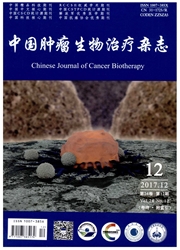

 中文摘要:
中文摘要:
骨髓增生异常综合征(MDS)是一组异质性很强的疾病,临床上需针对不同类型MDS采取分层治疗,针对不同目的选择个体化治疗方案。近年研究表明,异基因造血干细胞移植(Allo-HSCT)治疗MDS的疗效确切,预后评分系统对MDS移植后的疗效有重要预测作用,年龄对50岁以上各年龄段的MDS患者移植后总体生存的影响不大,非清髓或减低剂量预处理的Allo-HSCT使更多年老体弱患者耐受移植治疗,移植时机是影响Allo-HSCT疗效和预后的重要因素。
 英文摘要:
英文摘要:
Myelodysplastic syndromes (MDS) are a group of diseases that involve ineffective production of the myeloid class of blood ceils. The treatment of MDS varies based on different types of MDS. The recent evidence shows that allogeneic hematopoietic stem cell transplantation (Allo HSCT) to treat MDS is with promising outcomes and that prognostic scoring systems are valuable for prognosis of MDS patients after Allo HSCT. Furthermore, the age is not a risk factor for the overall survival of MDS patients after transplantation and the Allo HSCT with nonmyeloablative pretreatment or reduced intensity conditioning makes more elderly patients tolerant to Allo HSCT. However, transplant timing is still an important factor for the Allo HSCT outcomes.
 同期刊论文项目
同期刊论文项目
 同项目期刊论文
同项目期刊论文
 Expression of ICOSLG on Mouse Hematologic Neoplasm Cell Lines and Their Influence on Cytotoxicity in
Expression of ICOSLG on Mouse Hematologic Neoplasm Cell Lines and Their Influence on Cytotoxicity in Incorporation of arsenic trioxide in induction therapy improves survival of patients with newly diag
Incorporation of arsenic trioxide in induction therapy improves survival of patients with newly diag Dysfunction of Bone Marrow Vascular Niche in Acute Graft-Versus-Host Disease after MHC-Haploidentica
Dysfunction of Bone Marrow Vascular Niche in Acute Graft-Versus-Host Disease after MHC-Haploidentica Graft-versus-Host Disease Causes Broad Suppression of Hematopoietic Primitive Cells and Blocks Megak
Graft-versus-Host Disease Causes Broad Suppression of Hematopoietic Primitive Cells and Blocks Megak High prognostic value of minimal residual disease detected by flow-cytometry-enhanced fluorescence i
High prognostic value of minimal residual disease detected by flow-cytometry-enhanced fluorescence i 期刊信息
期刊信息
